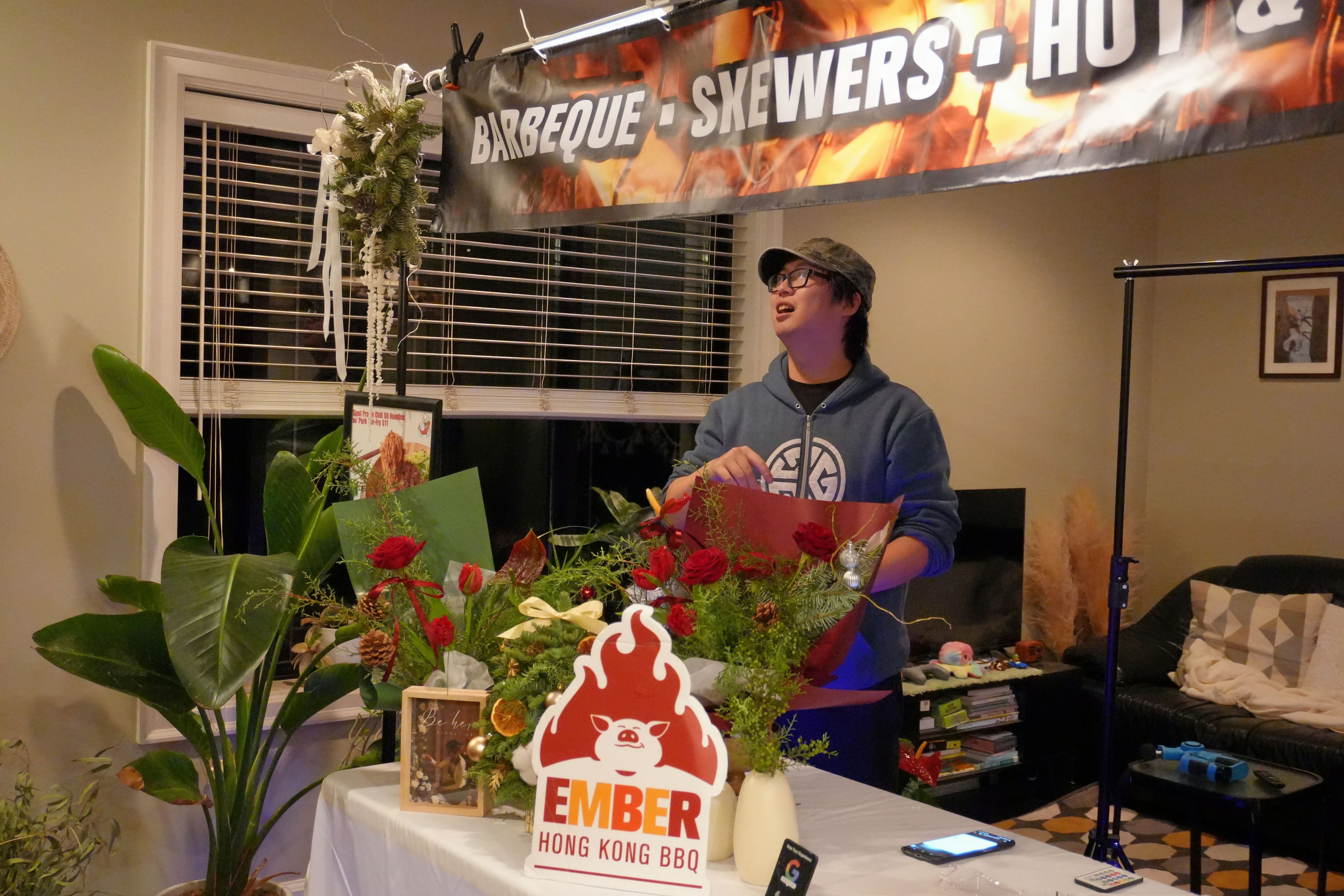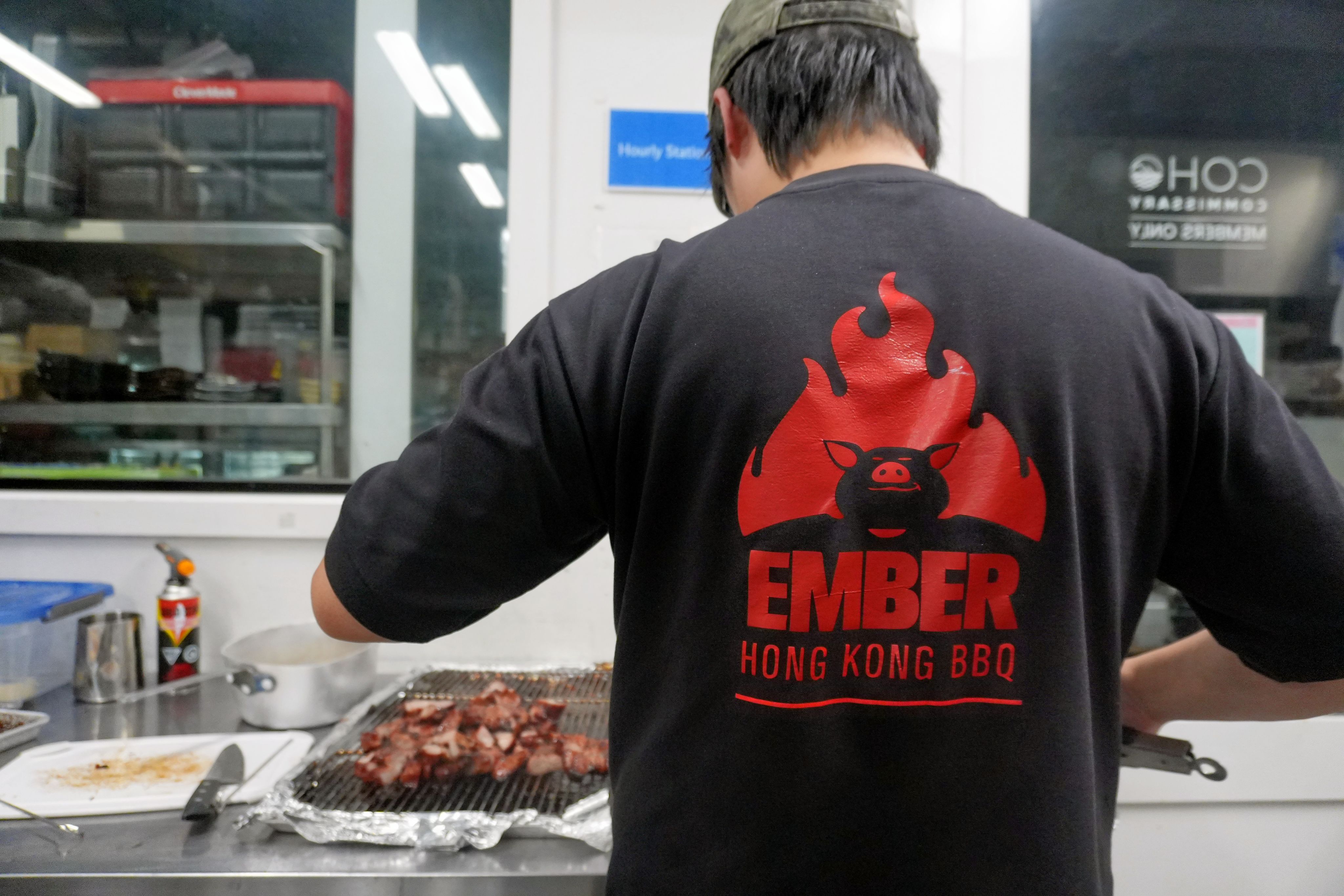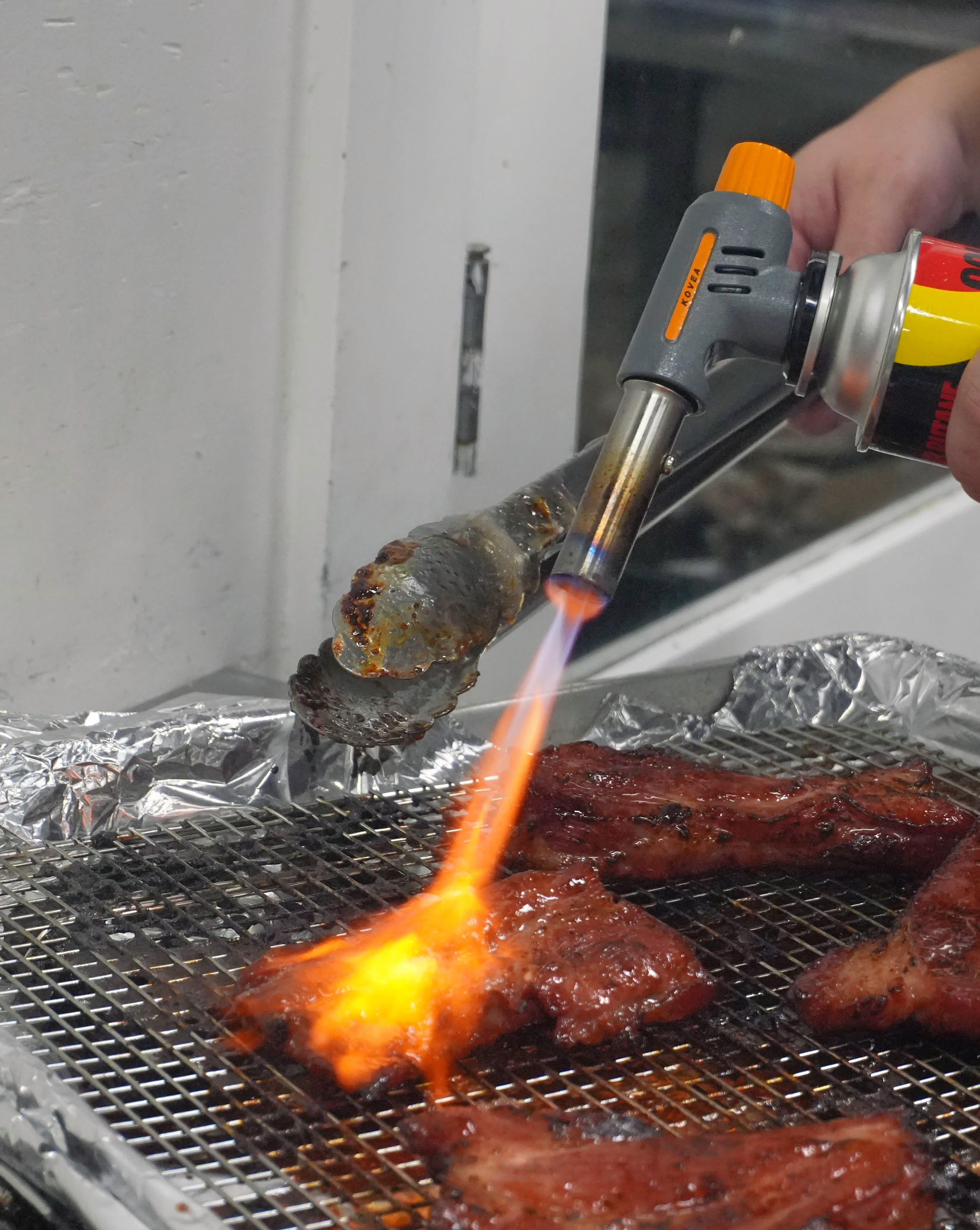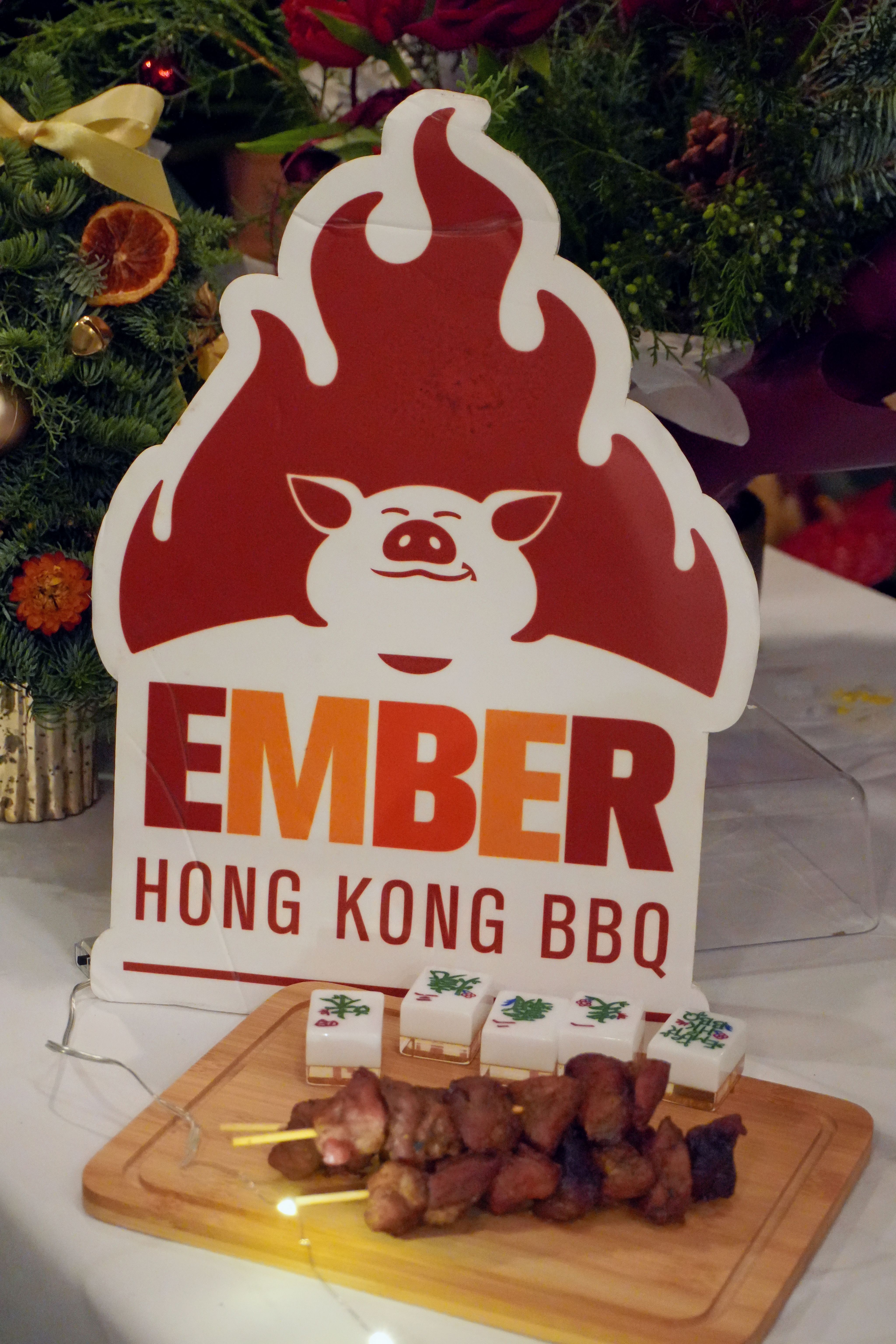A Taste of Home
A Hong Kong second-generation immigrant making his way to connect cultures through diaspora food business.
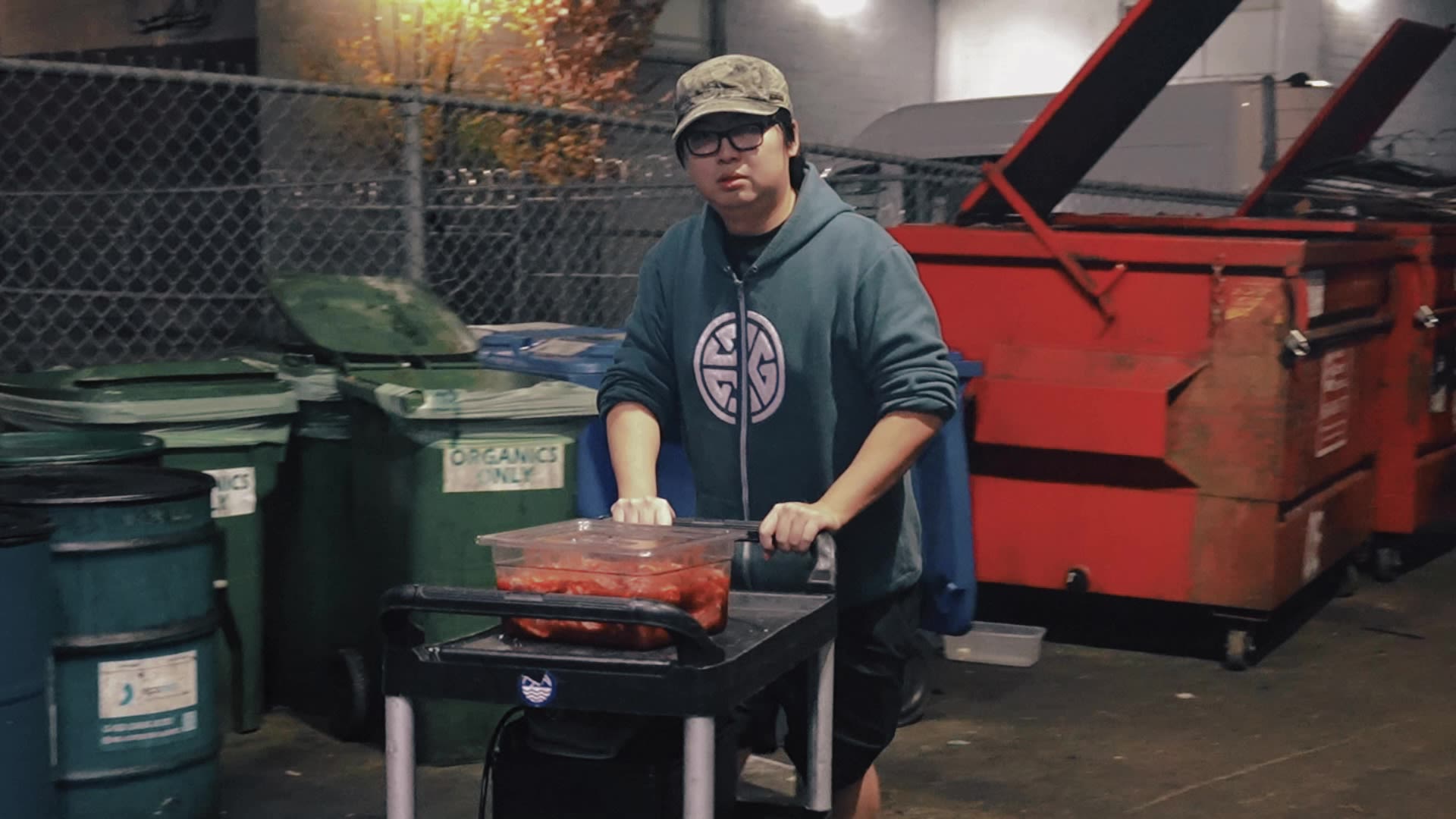
Born into an immigrant family from Hong Kong, Kevin grew up with an intimate connection to his parents’ homeland. But when he returned to Vancouver for university, something felt amiss.
“The flavors I found here were close, but they weren’t right,” he recalls. “The flavors, the textures—it was like a piece of home was missing.”
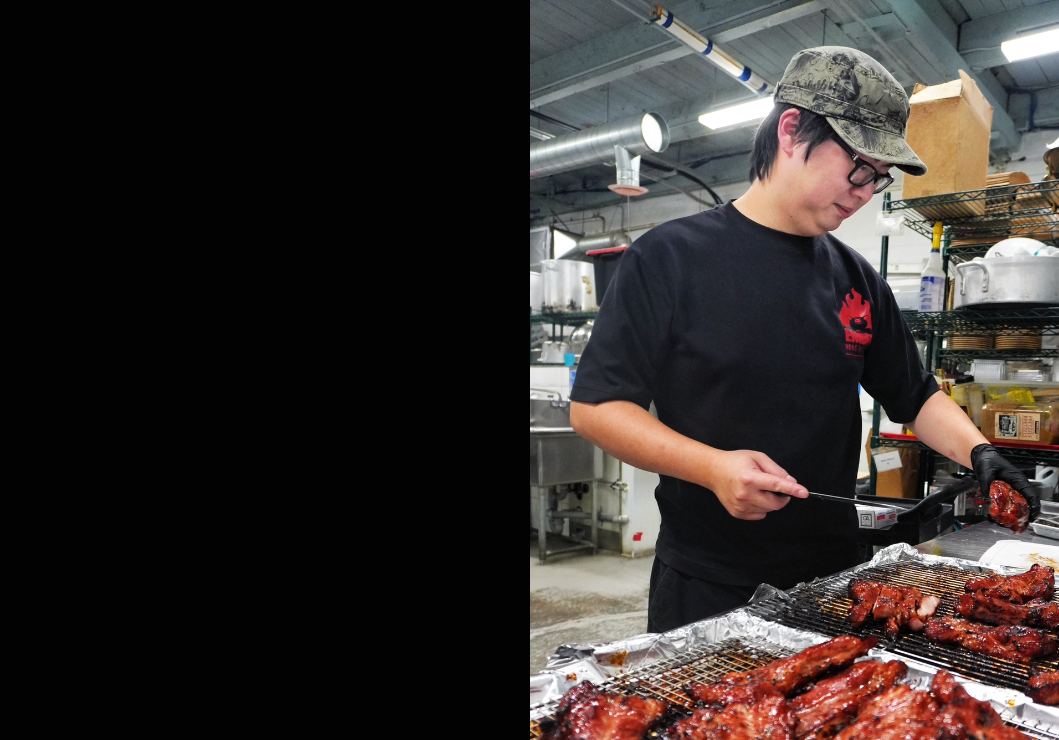
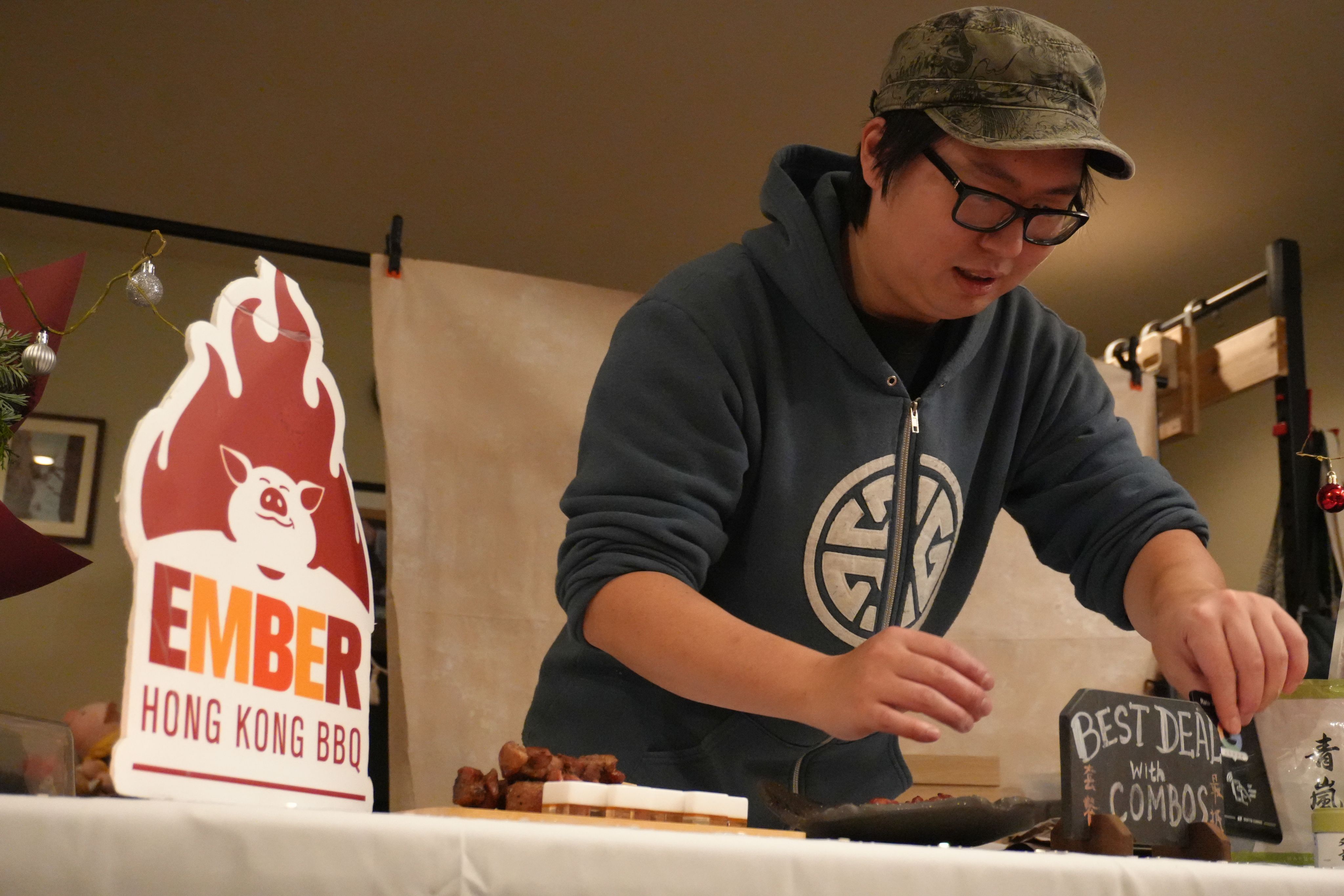
And that's why he created Ember.
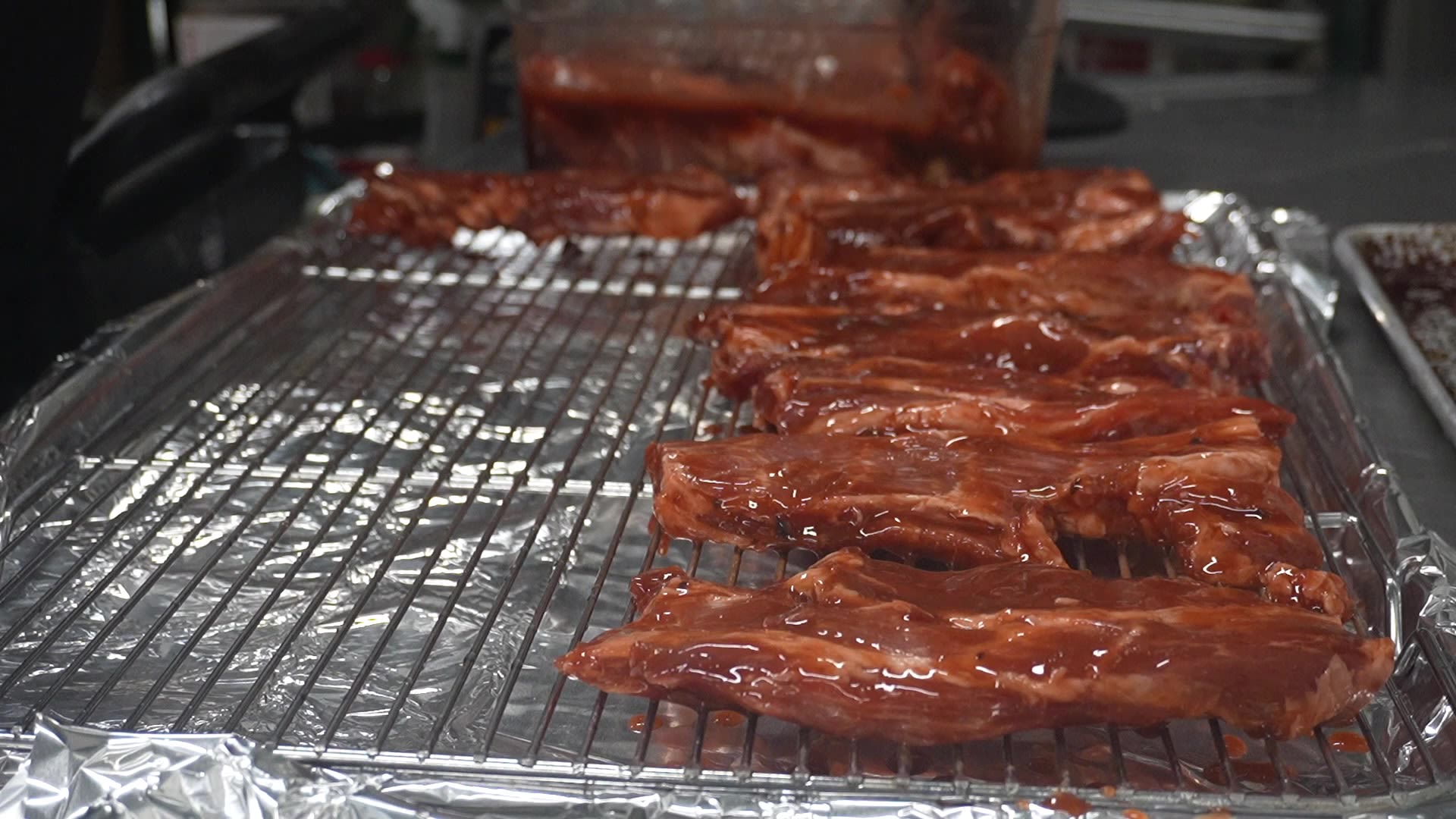
“I want to bring Hong Kong’s unique flavors to everyone in Vancouver—not just to Hongkongers, but all communities.”
To many of Ember’s customer, these dishes aren’t just meals—they carry the nostalgia of home, the warmth of family dinners, and the familiar aromas of street food stalls in Hong Kong.
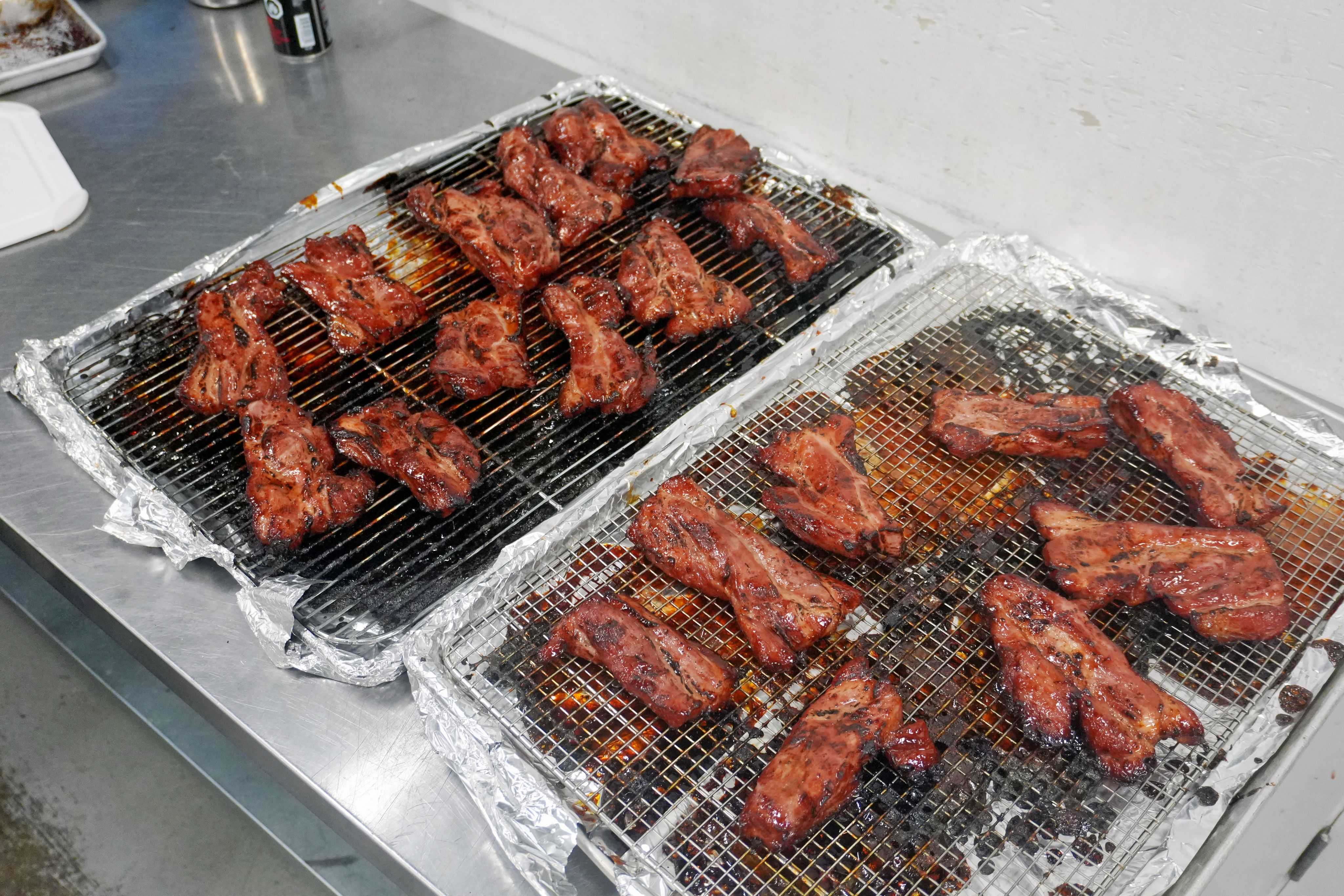
Immigrant Businesses Taking Centre of the Stage
Immigrants are playing an increasingly important role in shaping Canada’s conomy.
In 2024, 1 in 3 of entrepreneurs in Canada is an immigrant.
"The growing presence of immigrant entrepreneurs will make a significant contribution to the Canadian economy."
According to the BDC, immigrants are set to account for over 40% of Canadian entrepreneurs over the next decade, up from just one-third today.
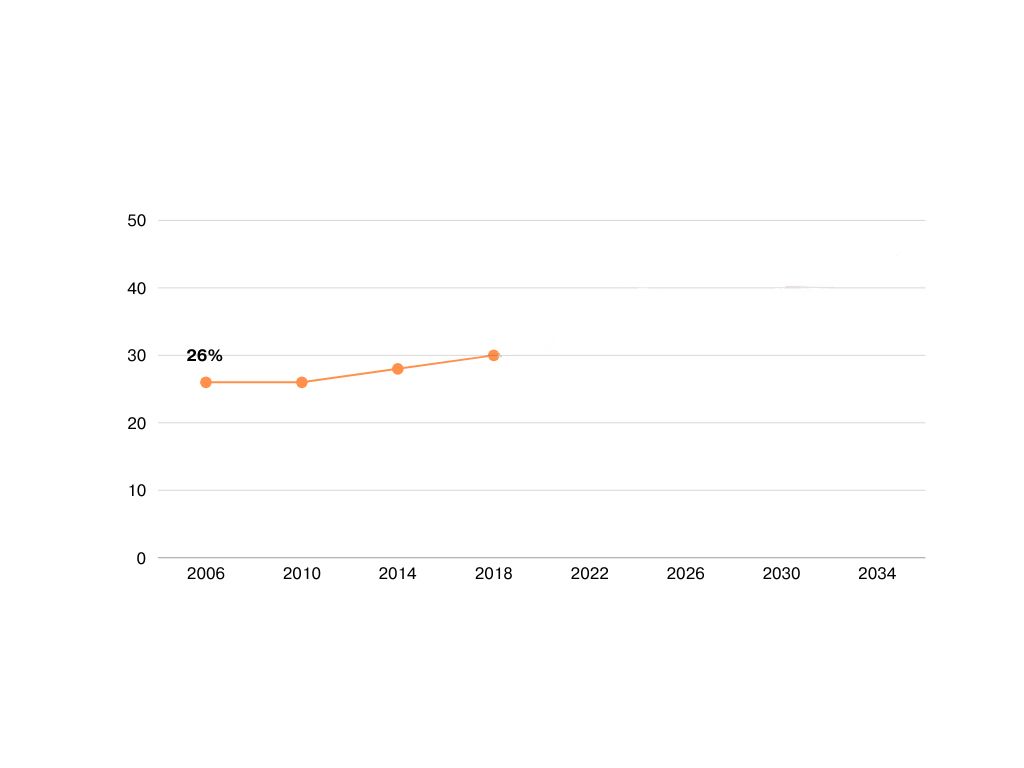

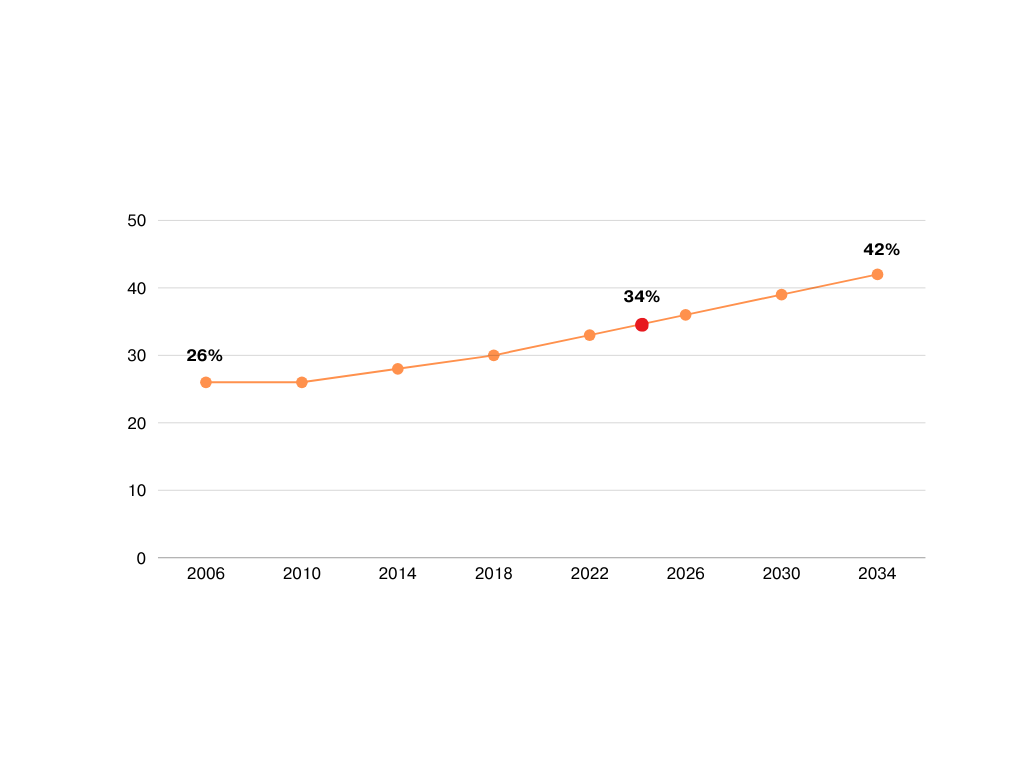
B.C. Set to Lead in Immigrant Entrepreneurship along with Ontario
Today, immigrants account for over 40% of entrepreneurs in Ontario and B.C., outpacing the national average of 34%.
"In ten years, half of Ontario and B.C. entrepreneurs should be immigrants."
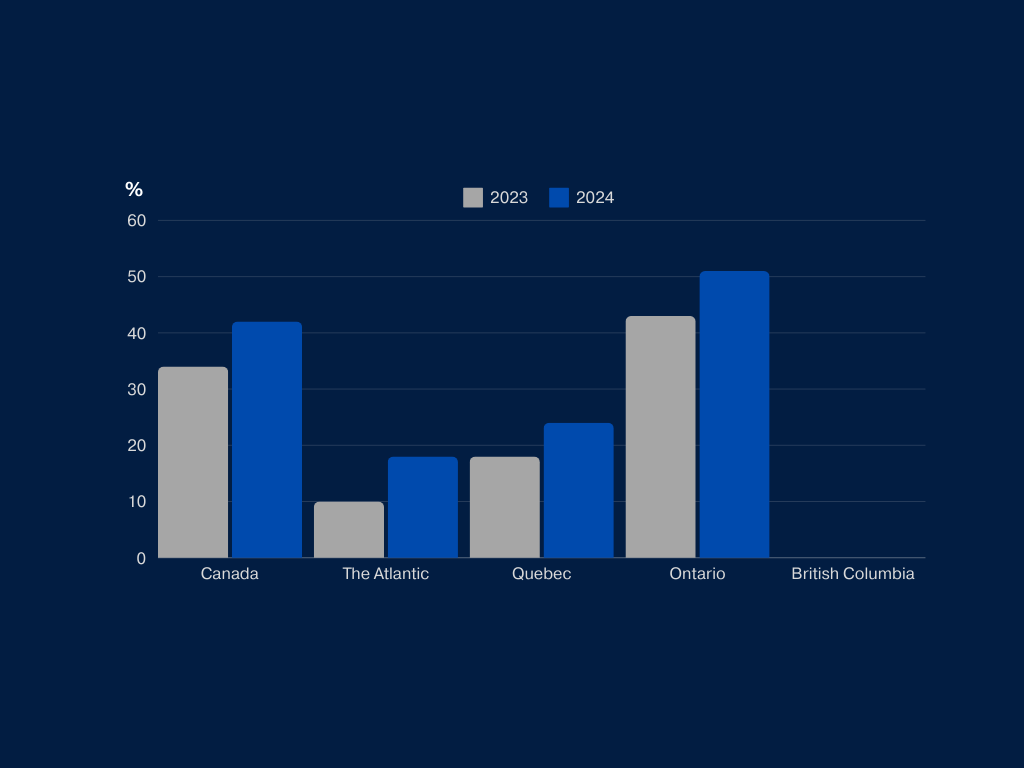
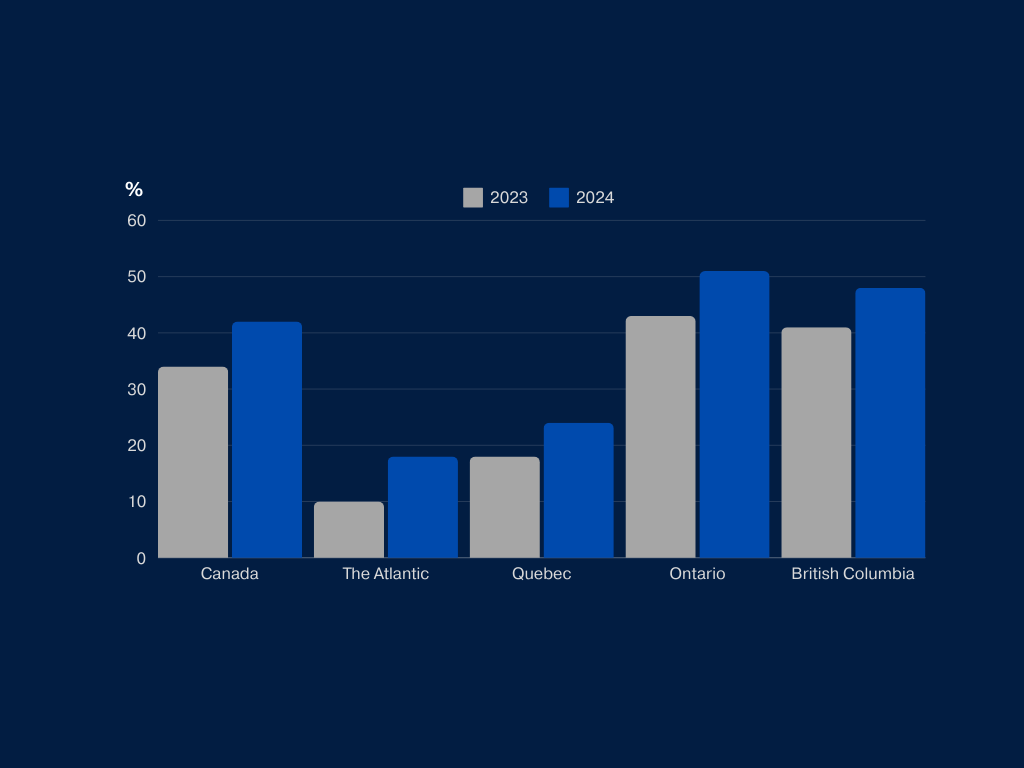
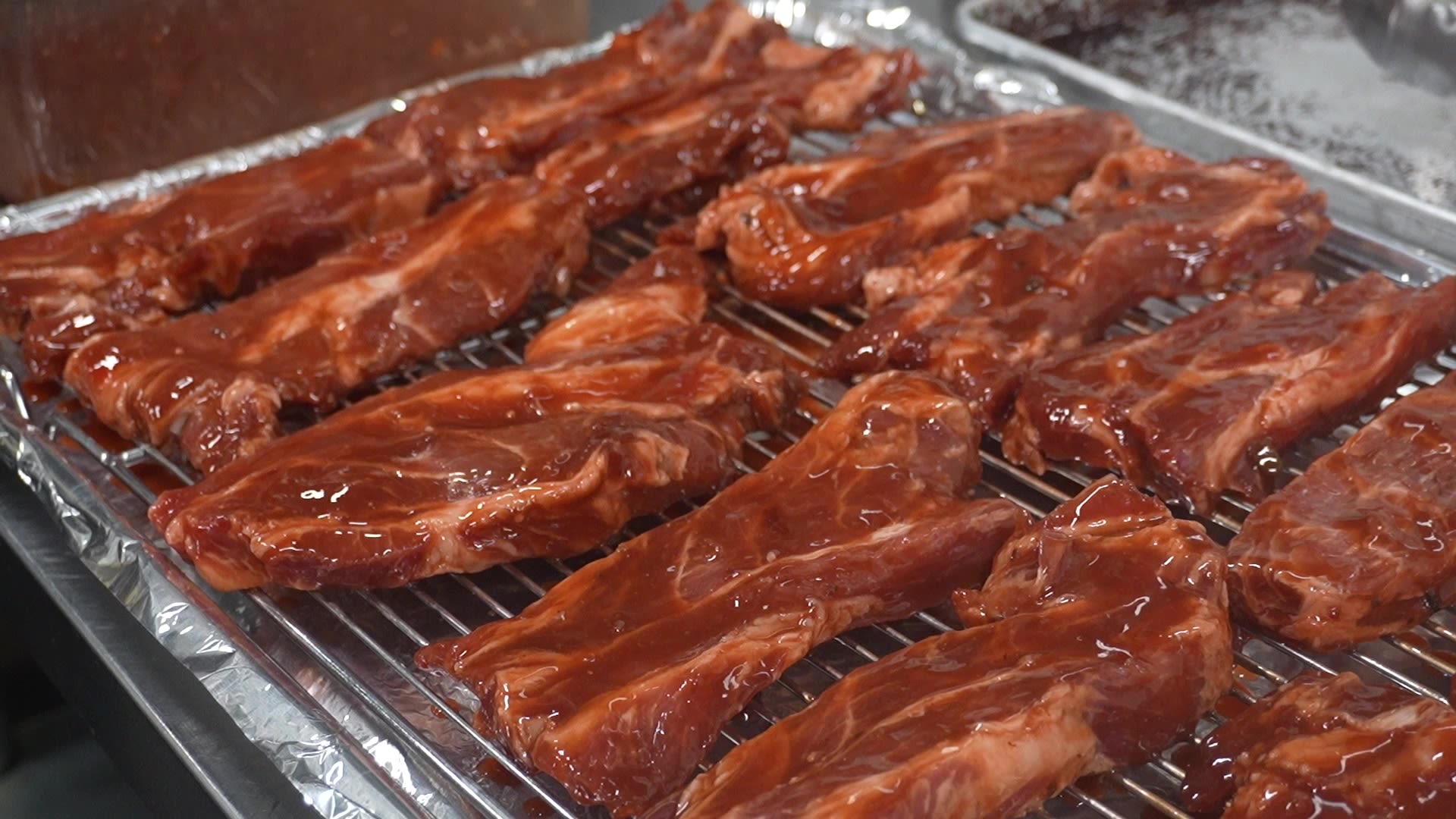
Char siu, also known as Chinese barbecued pork, is at the core of Ember.
After marinating in soy sauce, sugar, and honey, the pork is then roasted over an open fire, until it develops a caramelized glaze.
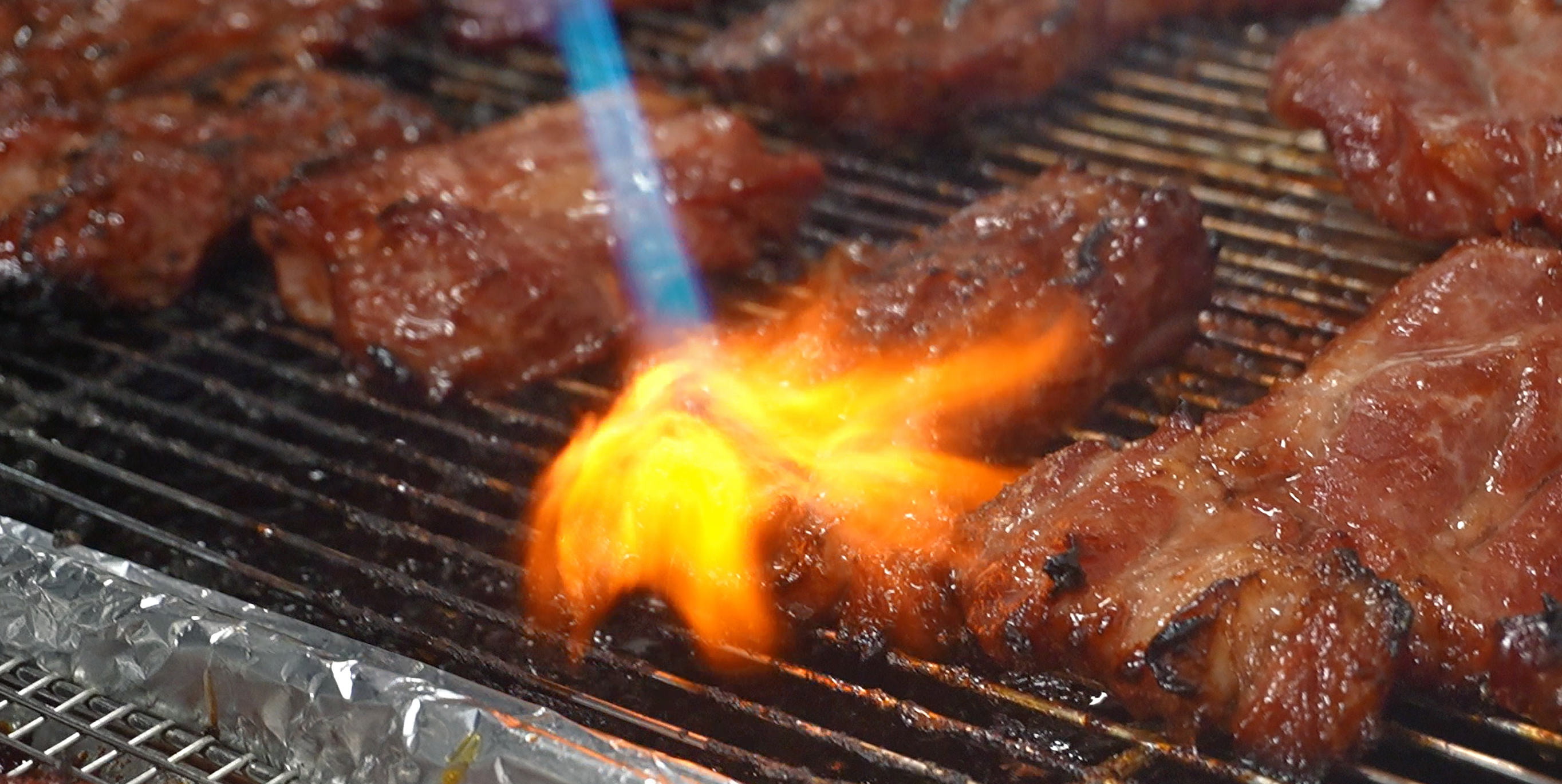
But for Ember, selling authentic char siu in Vancouver comes with its own set of challenge. And among them, the biggest one is sourcing the right meat.
In Hong Kong, char siu is often made with pork shoulder, cuts that have the perfect mix of tenderness and fat.
But in Vancouver, those cuts are hard to find. Most of the times, they are either sold as part of the whole shoulder that includes portions too lean and sinewy for char siu, or the ideal portion is priced exceptionally high.
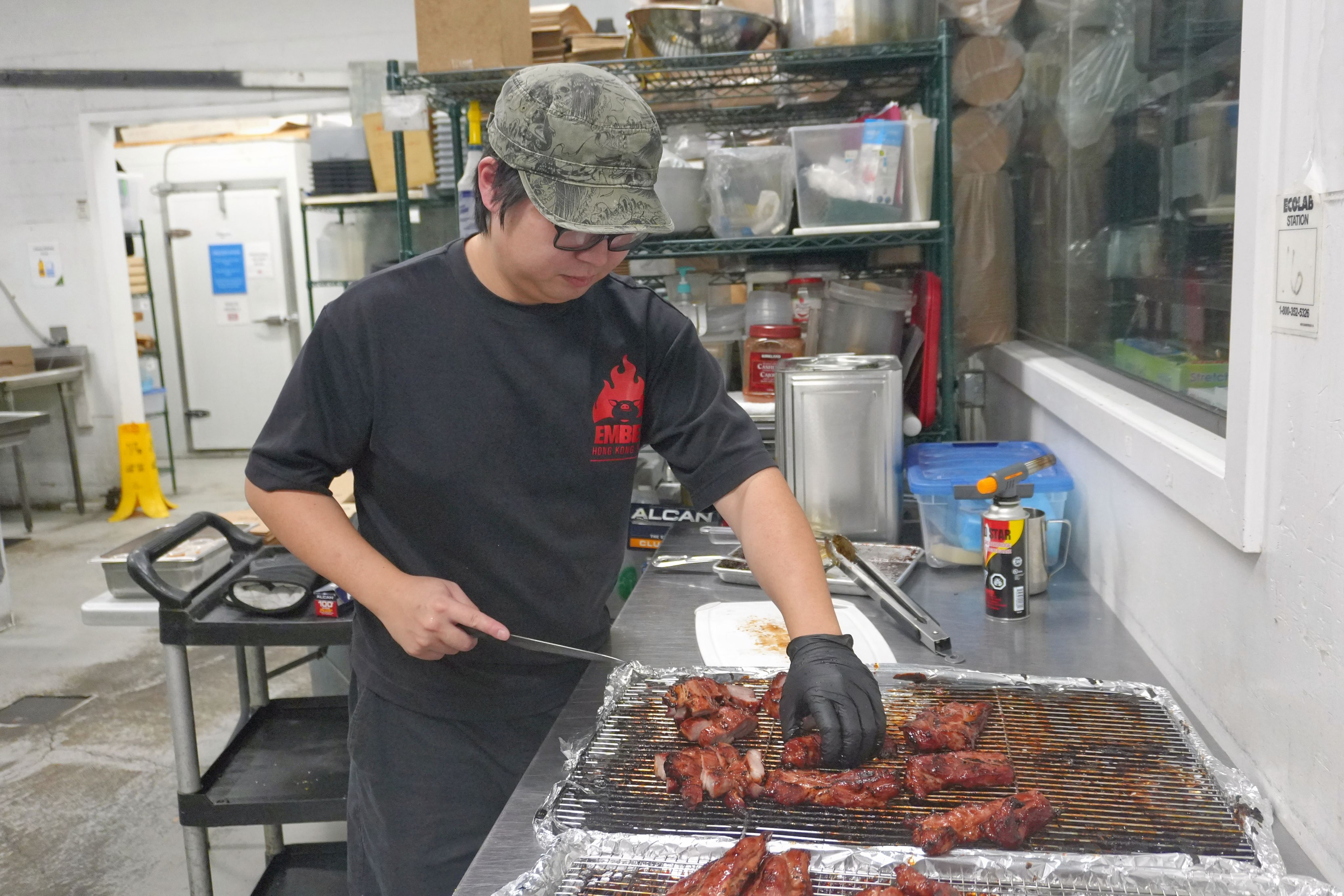

“Back home, you could walk into a market and get exactly the piece you need,” Kevin shares. “Here, you’re buying the whole shoulder, and most of it isn’t suitable for char siu. The meat is too lean or filled with sinew—it just doesn’t work.”
Some stores may choose to compromise on quality, but it is not an option for Kevin. “Some places use different cuts just to make it work, but I can’t do that. The flavor wouldn’t be right—it wouldn’t be authentic,” he says. “In Hong Kong, char siu is everywhere—each family may have their own recipe, their own way of preparing it. But here, it’s a different story. If we want to provide that same flavor, we have to go the extra mile.”
Through trial and error, Kevin has turned to some creative solutions. “The leaner parts of the pork? I use those for other dishes, like five-spice minced pork, which is also a taste of Hong Kong. As for the parts with sinew, I turn them into meat sauce—it actually enhances the texture,” he explains.
Beyond reimagining his menu, Kevin collaborates with local businesses to sell off unused cuts. “I’ve partnered with other shops to make sure nothing goes to waste. They buy what I can’t use, and it helps balance the cost.”
“Char siu is more than just a dish,” Kevin says. “It’s a piece of my culture, a taste of home. That’s why I go the extra mile—it deserves to be done right.”
As Christmas draws near, Kevin is busy with crafting a festive pop-up stall for an upcoming holiday market.
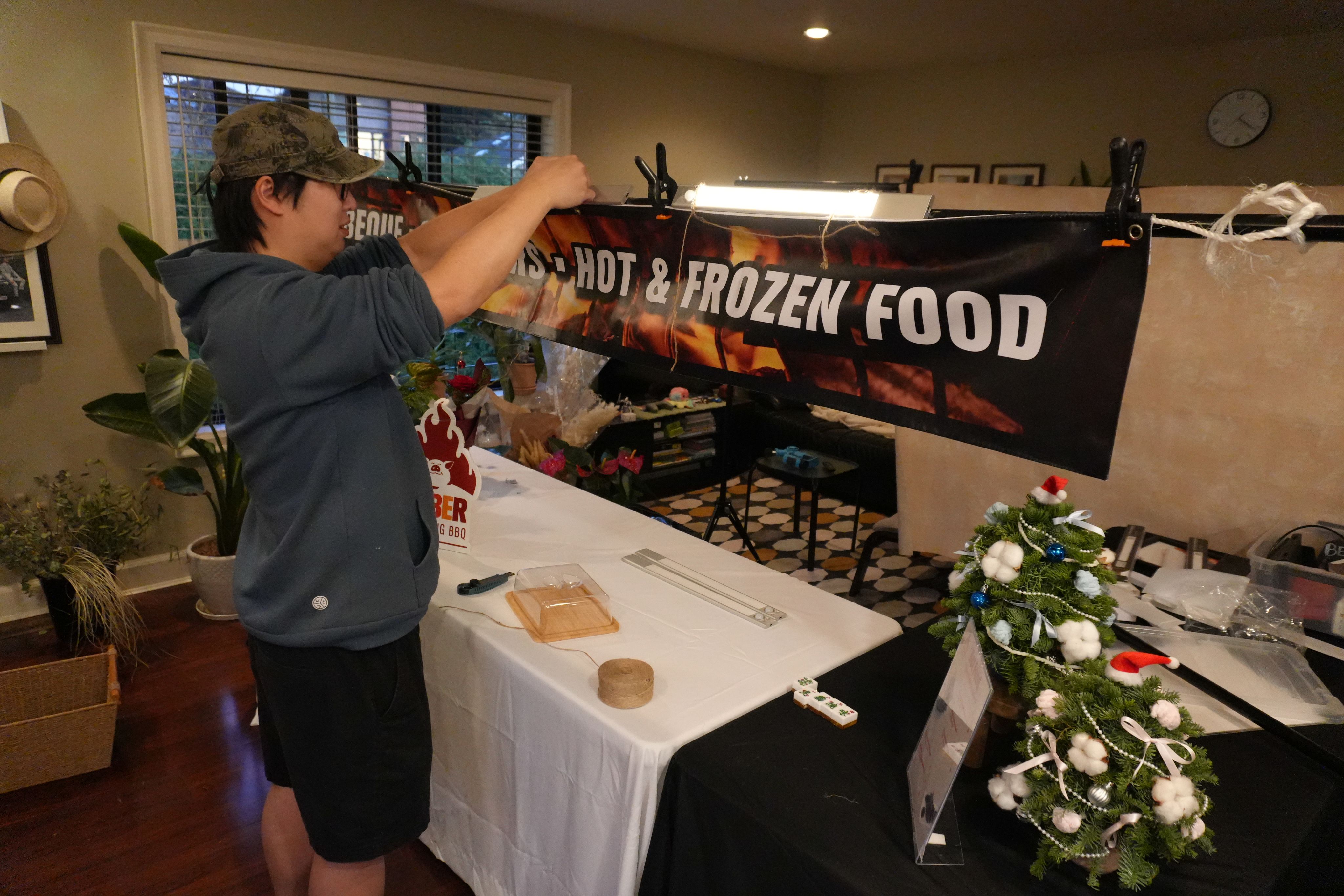
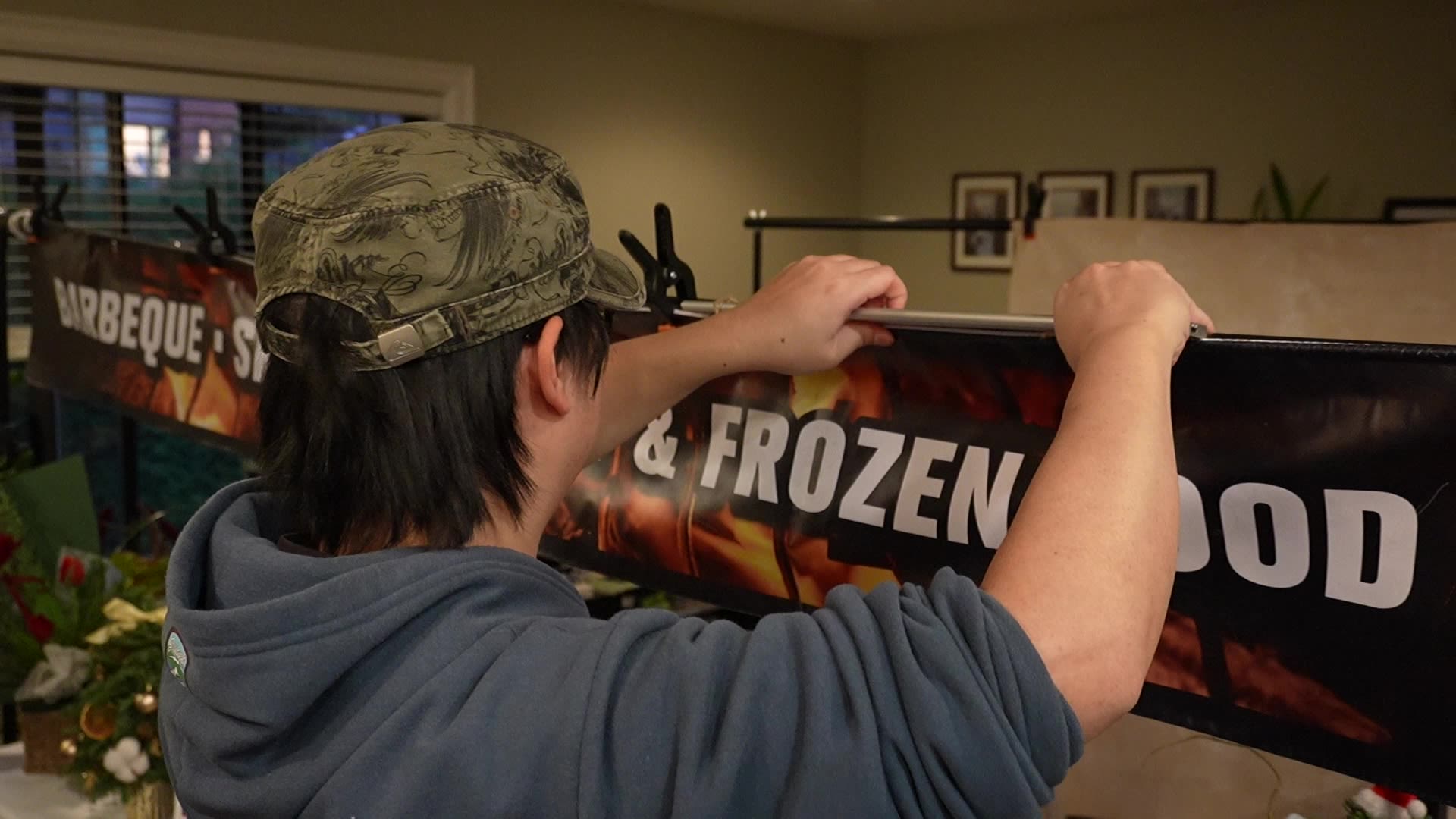
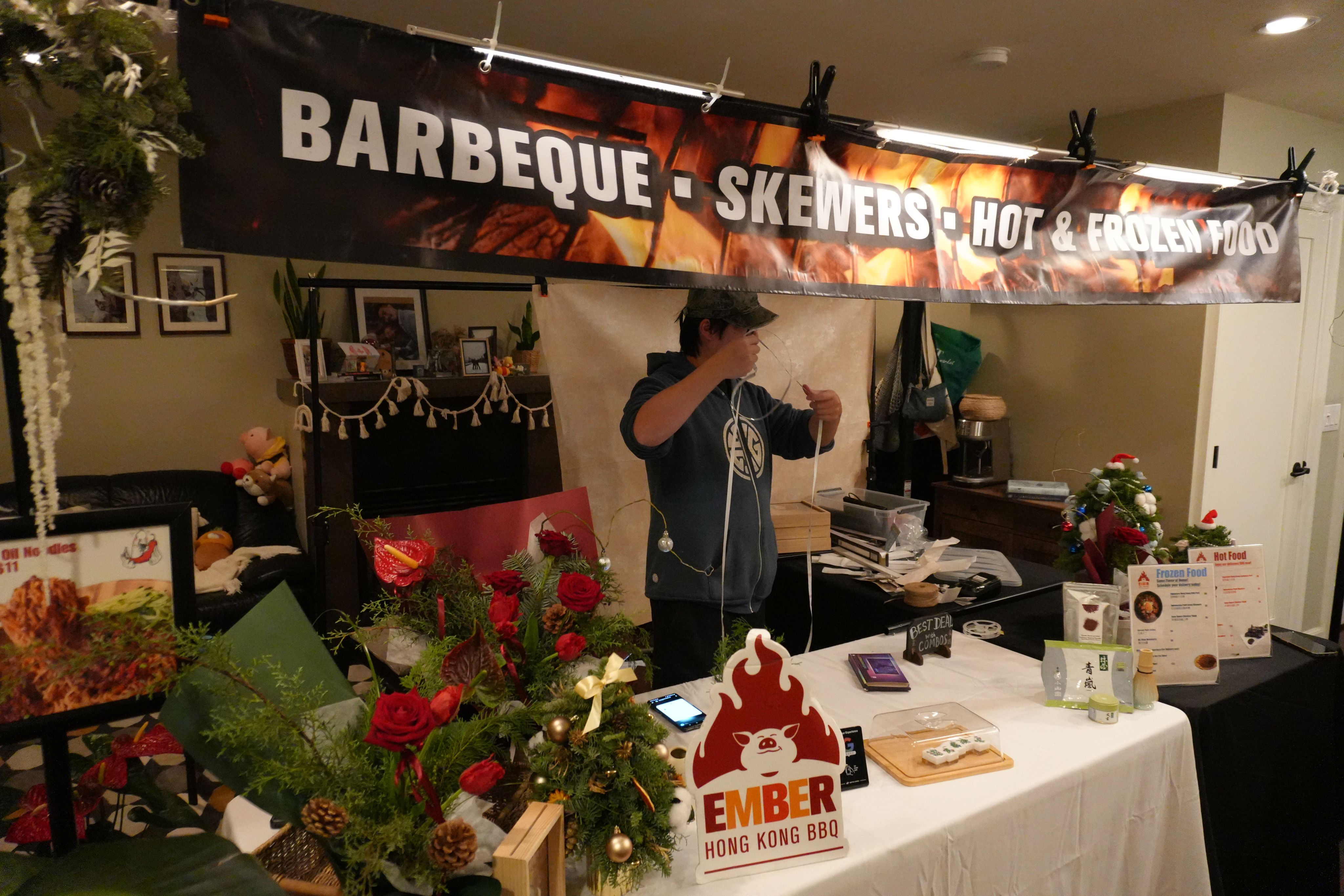

Looking ahead, Kevin hopes to continue showing up at pop-up events and markets to build a broader customer base and introduce Chinese barbecue to non-Chinese audiences. “Chinese barbecue has existed in Chinatown and Vancouver for so long. But I met people who said they’d seen barbecue shops every day but never tried the food,” Kevin recalls. “It’s like there’s an invisible wall between cultures, even in a city as multicultural as Vancouver.”
More than just a barbecue venture, Ember is among many other immigrant entrepreneurs who hope to connect people and preserve cultures. As Vancouver’s immigrant entrepreneurship scene continues to grow, stories like Kevin’s remind us of the flavors and traditions that enrich our shared table.
